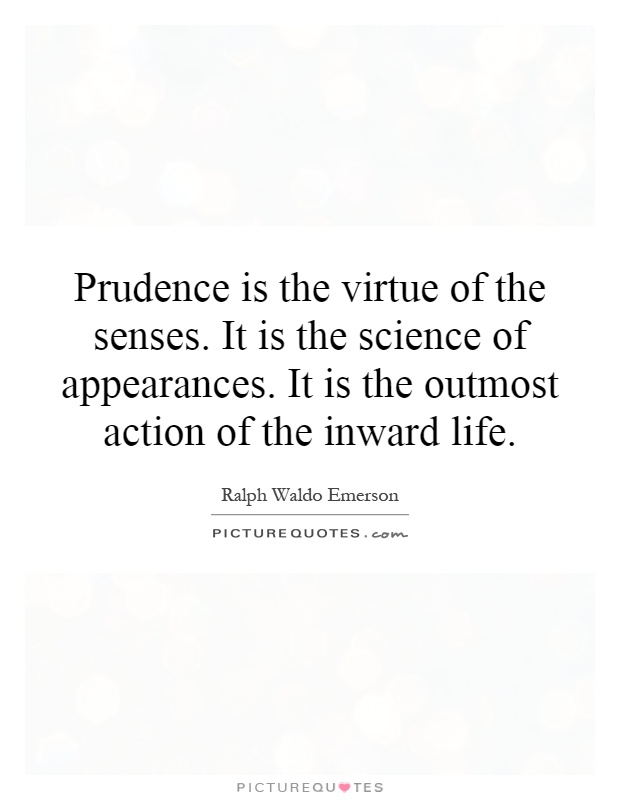Prudence is the virtue of the senses. It is the science of appearances. It is the outmost action of the inward life

Prudence is the virtue of the senses. It is the science of appearances. It is the outmost action of the inward life
Ralph Waldo Emerson, a prominent American essayist, poet, and philosopher, was known for his transcendentalist beliefs and his emphasis on self-reliance, individualism, and the importance of intuition. In his essay "Prudence," Emerson explores the concept of prudence as a virtue of the senses and as the science of appearances. He argues that prudence is not just about cautiousness or practicality, but rather about understanding the world through our senses and intuition.Emerson believed that prudence is the virtue of the senses because it involves using our senses to perceive the world around us and make informed decisions. He saw prudence as a way of being attuned to the world and understanding the appearances of things. By paying attention to our senses and being mindful of our surroundings, we can navigate through life with wisdom and discernment.
Emerson also viewed prudence as the outmost action of the inward life, meaning that it is the external manifestation of our inner thoughts and beliefs. He believed that prudence is not just about outward actions, but also about cultivating a deep understanding of ourselves and our place in the world. By being true to ourselves and following our intuition, we can act prudently and make decisions that align with our values and beliefs.
Emerson's ideas about prudence reflect his transcendentalist philosophy, which emphasizes the importance of individual experience, intuition, and self-reliance. He believed that by trusting our senses and inner wisdom, we can live authentically and make choices that are in harmony with the natural world.












 Friendship Quotes
Friendship Quotes Love Quotes
Love Quotes Life Quotes
Life Quotes Funny Quotes
Funny Quotes Motivational Quotes
Motivational Quotes Inspirational Quotes
Inspirational Quotes